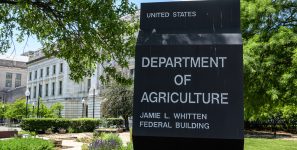USTR Announces Section 301 Investigation of China
That was quick, but not surprising. Just a week after President Donald Trump requested that US Trade Representative Robert Lighthizer look into the possibility of an investigation of China under Section 301 of the Trade Act of 1974, Lighthizer formally initiated just that process.
According to a statement from the USTR, the investigation “will seek to determine whether acts, policies, and practices of the government of China related to technology transfer, intellectual property, and innovation are unreasonable or discriminatory and burden or restrict US commerce,” exactly the verbiage Trump used in his request.
“After consulting with stakeholders and other government agencies, I have determined that these critical issues merit a thorough investigation,” said Lighthizer. “I notified the President that I am beginning an investigation under Section 301 of the Trade Act of 1974.”
The initiation follows upon Trump’s memorandum of August 14 instructing Lighthizer to consider the initiation of an investigation. The memorandum emphasized that “the United States is a world leader in research-and-development-intensive, high-technology goods,” and that “violations of intellectual property rights and other unfair technology transfers potentially threaten United States firms by undermining their ability to compete fairly in the global market.” The memorandum further noted that China’s conduct “may inhibit United States exports, deprive United States citizens of fair remuneration for their innovations, divert American jobs to workers in China, contribute to our trade deficit with China, and otherwise undermine American manufacturing, services, and innovation.”
Section 301 of the Trade Act of 1974, as amended, gives the US Trade Representative broad authority to respond to a foreign country’s unfair trade practices. If USTR makes an affirmative determination of actionable conduct, it has the authority to take all appropriate and feasible action to obtain the elimination of the act, policy, or practice, subject to the direction of the president, if any. The statute includes authorization to take any actions that are within the president’s power with respect to trade in goods or services, or any other area of pertinent relations with the foreign country.
Earlier reporting indicated that the White House settled on a Section 301 investigation to punish China for its inaction on North Korea. Whether that is an appropriate use of the executive’s power to regulate trade is questionable.
Beyond that, it is almost certain this move will have no effect on China’s policy with regard to North Korea. A broad investigation of the kind proposed would take a long time to complete if it is to be at all credible. Beyond that, Section 301 measures are subject, in this case, to the procedures of the World Trade Organization, providing the opportunity for protracted litigation and delay.
Beyond the immediate gratification of current headlines, the ultimate effect of the Section 301 investigation will be felt only a long way down the road, and at that point they will have nothing to do with North Korea.





Leave a Reply